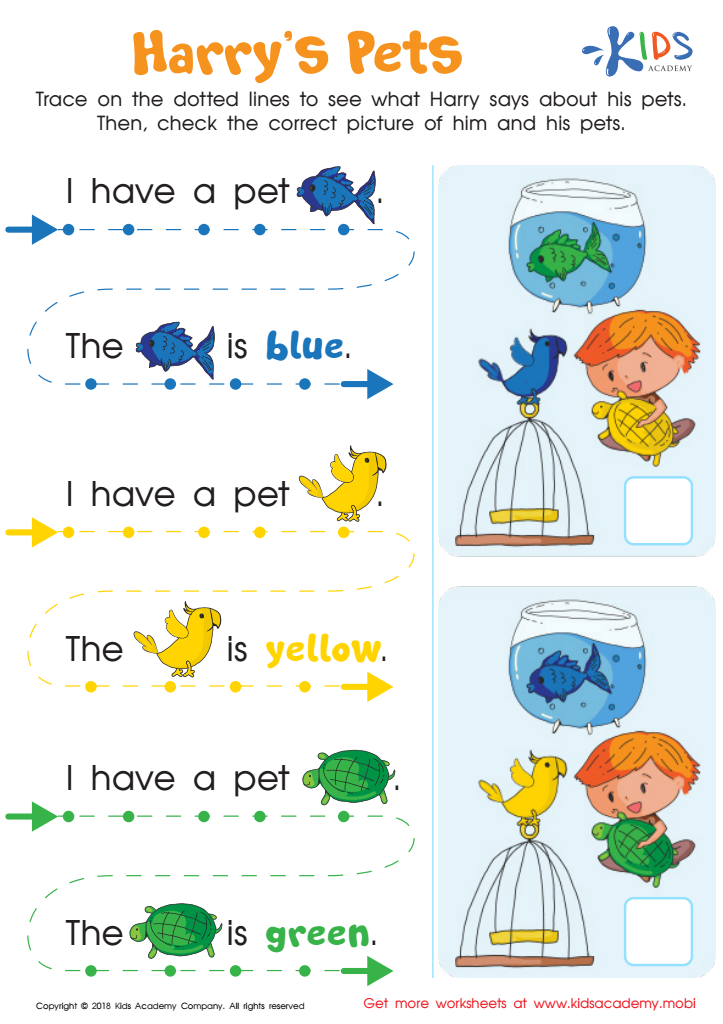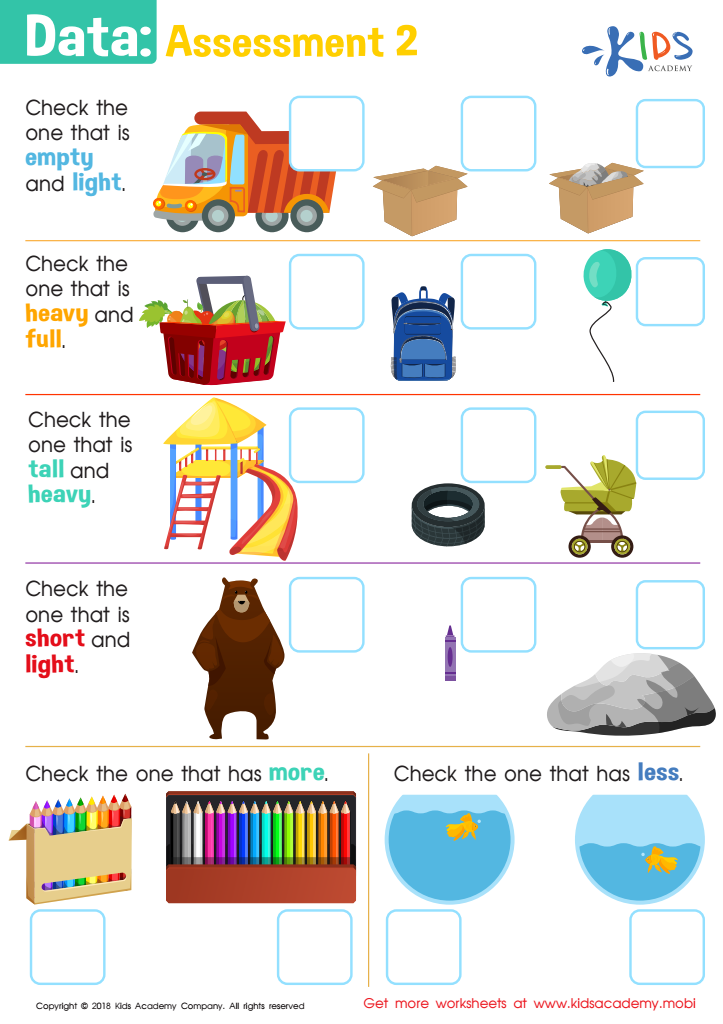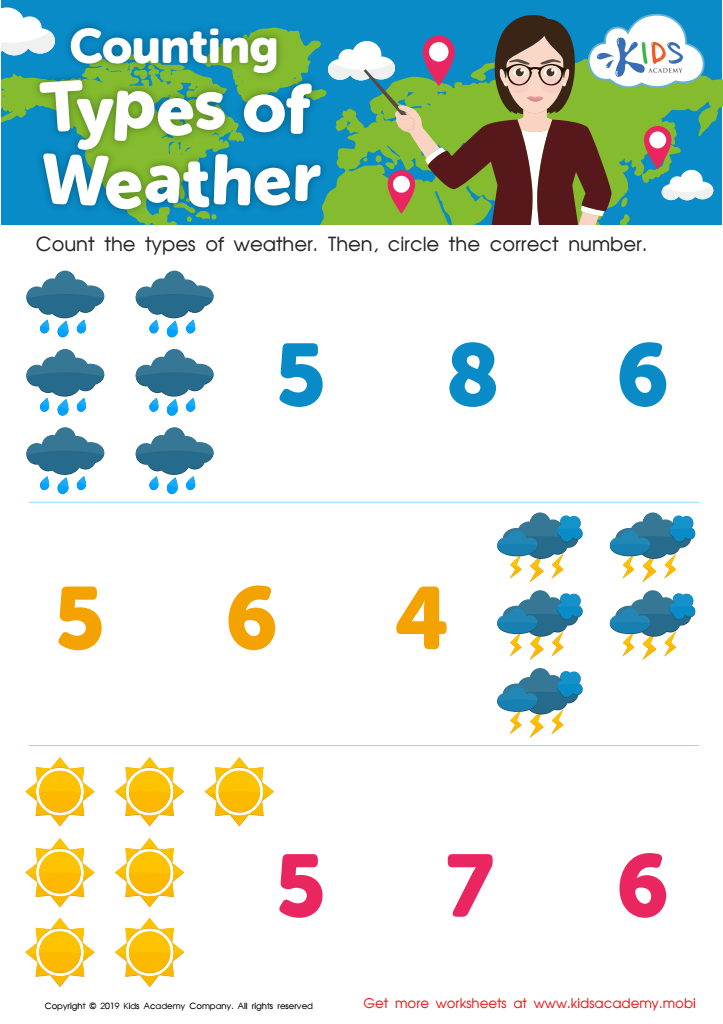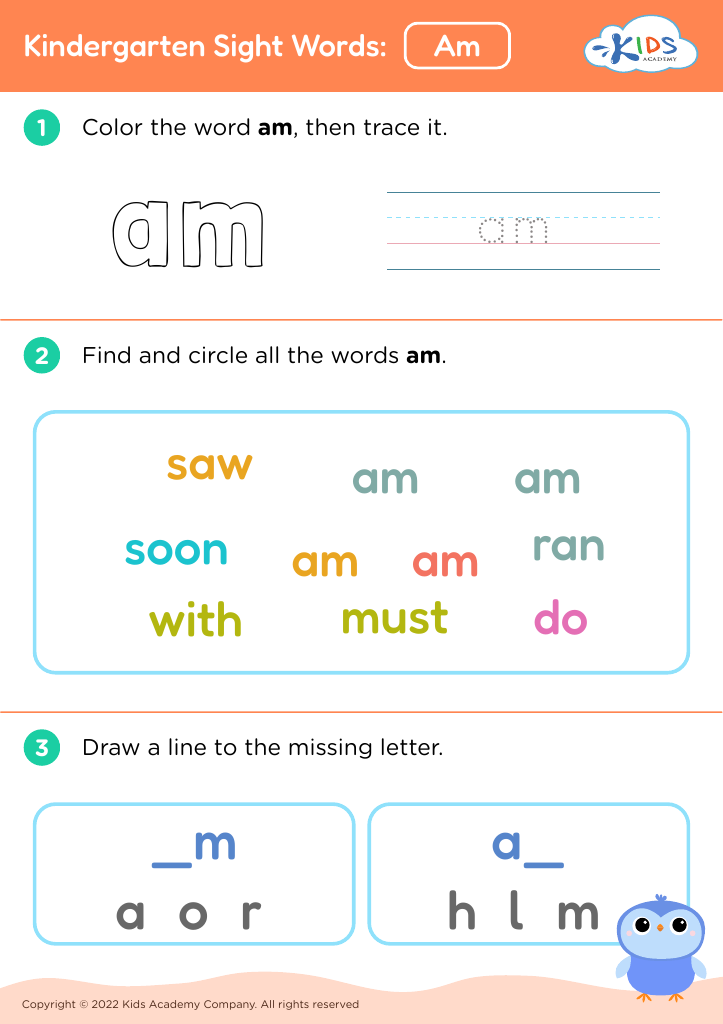Data interpretation Worksheets for Ages 3-4
4 filtered results
-
From - To
Welcome to our Data Interpretation Worksheets for Ages 3-4 – a fun and engaging way to introduce young learners to essential data skills! Designed for preschoolers, these worksheets focus on basic data concepts like categorization and simple graphing. With vibrant visuals and relatable themes, children will explore activities such as sorting objects, counting, and answering questions based on collected data. Our carefully crafted resources encourage critical thinking and enhance early math skills while fostering a love for learning. Start your little one's journey into data interpretation today and watch as they gain confidence in their abilities through play and exploration!


Read from Left to Right: Harry's Pets Worksheet


Data: Assessment 2 Worksheet


Counting Types of Weather Worksheet
Data interpretation is a crucial skill that benefits young children aged 3-4, and it’s essential for parents and teachers to prioritize this learning area. At this age, children are naturally curious and eager to explore the world around them. Introducing basic data interpretation—like counting objects, sorting items by attributes (size, color, shape), and understanding simple graphs—lays the foundation for critical thinking and analytical skills.
When children engage with data, they also enhance their mathematical understanding, improve problem-solving capabilities, and learn to make informed decisions based on observations. These activities support language development as they label, classify, and discuss their findings, which fosters communication skills.
Moreover, data interpretation nurtures a sense of wonder and inquiry. When children investigate patterns or analyze simple stats, they learn to ask questions and seek answers, fueling their desire for knowledge. For parents and teachers, promoting this skill encourages an interactive learning environment, making education a fun and engaging process. Understanding basic data interpretation empowers young learners and prepares them for more complex concepts in math and science as they progress. Ultimately, investing time in this area cultivates a strong foundation for lifelong learning and cognitive development.
 Assign to My Students
Assign to My Students

















